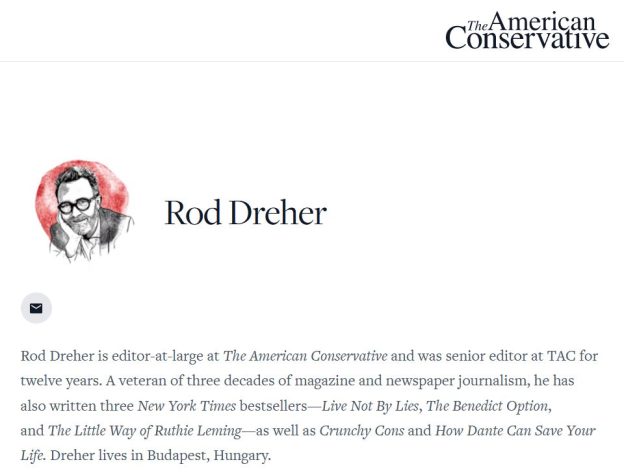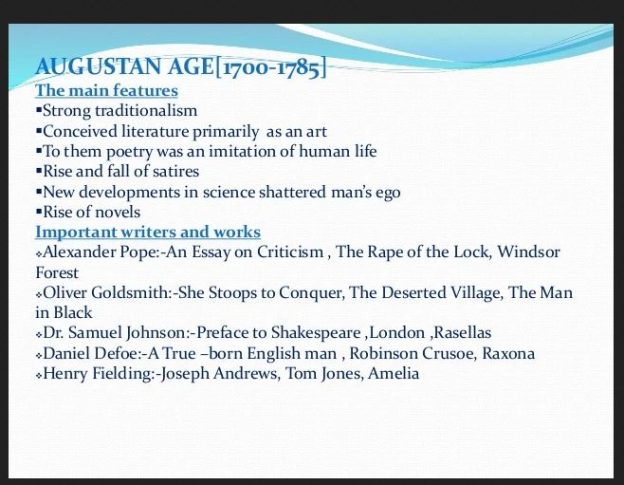The counterculture of England’s Augustan Age was one of the most remarkable in history. It should be a model for the Dissident Right of today
By Juvenal Early
Think of a nominally Christian country in which a beleaguered majority is everywhere beset by the corruption of its leaders and the criminality of rebarbative minorities. Corruption reigns in high places, barbarism and crime reign in the street, and the culture is pervaded by mediocrities, who are celebrated as rebel geniuses, when they’re really just dullards, courtiers, and the usual Establishment lackeys. Can you guess?
That’s right. England in the Augustan Age, 300 years ago.
This was a time after the Glorious Revolution of 1688, when the Catholic James II was usurped by his daughter Mary and her Dutch husband William of Orange. When the Duke of Marlborough proved that it was possible for a General to become richer than a King. This is also the age when the English Language evolved into what we know today.
But although people in the Augustan age were certainly better-read than the savage illiterates of our own times, still, as always, the lowest common denominator prevailed. And so, people eschewed their rich legacy of Dryden and Chaucer and Shakespeare, in favor of the smut purveyed by the odious bookseller Edmund Curll or the profuse dullness (Dulness) on offer from the hacks who infested Grub Street.
In 1721, Robert Walpole became England’s first prime minister, a year after the “South Sea Bubble,” the Wall Street Crash of its day. Scam and corruption were everywhere prevalent. Walpole was a man of his time, enriching his courtiers and punishing his enemies. He stayed in power for 20 years, during which time highwaymen, thieves, and thief-takers—like the infamous Jonathan Wild—held sway, and the average person was under siege.
But a culture always generates a counterculture, and the counterculture of the Augustan Age was one of the most remarkable in history. It should be a model for the Dissident Right of today. The key figures of that counterculture are two of the immortals of literature: Jonathan Swift and Alexander Pope. I’ve been hearing about Swift and Pope all my life but hadn’t known that they lived at the same time and were friends—although Swift was an Anglican clergyman and Pope a Catholic (not a big door-opener in post-Tudor England).
Swift and Pope joined with Dr John Arbuthnot and playwright John Gay to form the Scriblerus Club. Arbuthnot, a little too fond of eating, created the great English persona John Bull, the honest citizen who’s a tad slow on the uptake. Gay wrote what may be the first musical, “The Beggar’s Opera” (1728), a rollicking send-up of Walpole’s corrupt England. “The Beggar’s Opera” would be modernized by the German communist Bertolt Brecht into “The Three-penny Opera,” Gay’s protagonist Captain MacHeath transformed into Mack the Knife.
The Scriblerians inspired one another. More than anyone since the great Juvenal, they elevated satire to high art. Their targets were numerous, and they tended to consign them to the charnel house of Dulness (sic). The enemy list included Classics scholar Robert Bentley, depraved bookseller Edmund Curll, laughable Poet Laureate Colley Cibber, and critic Lewis Theobald. Above all, there was Walpole, as criminal-friendly as a Soros DA, who would’ve strung up the Scriblerians, if possible. As it was, he saw to Swift’s Irish exile and banned theatre in London after Gay’s “Beggar’s Opera” proved such a smashing success. Poor Gay died long before his sequel Polly was staged (in the age of Johnson!).
The best work of the Scriblerians still resonates three centuries later, especially in the case of Swift and Pope. They’ll be discussed for as long as great literature still matters.
Born into a Catholic Family, the same year Papist James II was ousted in favor of William and Mary, Pope’s (1688-1744) prospects were never bright. Fortunately, his family had money and could take shelter from the worst of the anti-Catholic persecution in lovely Windsor Forest. Many career paths were never an option for Pope. Plus, he was born with tuberculosis of the spine. Handicapped in body (he never grew above 4’6”), handicapped by religion (Swift tried to bribe him into the Church of England), denied all but the most rudimentary education, Pope could not have been expected to amount to much. Yet, he made more off the printed word than any writer since Shakespeare.
Inclined toward the Ancients, Pope imitated Horace and wrote first-rate translations of Homer. Classics scholars swear by his Iliad. He edited new editions of Shakespeare that were an invaluable link in the English theatre.
A poet, Pope wrote his brilliant satires in verse, mostly iambic pentameter. What does poetry have to do with satire? Oscar Wilde, anyone? Going back to Dryden, verse was a preferred vehicle for satire. Even Jonathan Swift used it occasionally. In Post-Revolutionary America, nothing stung like a good poem, and newspapers used it often. Take Jefferson’s friend Philip Freneau, editor of the National Gazette. Here he is in early 1800, jabbing fellow countrymen for going overboard in mourning the recently deceased George Washington:
He was no god, ye flattering knaves,
He own’d no world, he ruled no waves;
But—and exalt it, if you can,
He was the upright, Honest Man.
Pope’s eloquent venom was meted out to many agents of dullness, for instance:
Walpole and the courtier John Hervey (Epistle to Dr Arbuthnot):
Whether in florid impotence he speaks,
And, as the prompter (Walpole) breathes, the puppet (Hervey) squeaks.
Or at the ear of Eve (Queen Caroline), familiar toad,
Half froth, half venom, spits himself abroad,
In puns, or politics, or tales, or lies,
Or spite, or smut, or rhymes, or blasphemies,
His wit all seesaw, between that and this,
Now high, now low, now master up, now miss [referring to Hervey’s bisexuality].
George Bubb Dodington, a Walpole ally, very susceptible to toadying hacks:
But sick of fops, and poetry, and prate,
To Bufo (toad) left the whole Castalian (spring of the Muses) state.
Proud as Apollo, on his forked hill,
Sate full-blown Bufo, puffed by every quill,…
Sometimes there was tribute, here to his friend John Gay:
Or simple pride for flattery makes demands,
May dunce by dunce be whistled off my hands!
Blessed be the great! For those they take away,
And those they left me; for they left me Gay;
Left me to see neglected genius bloom,
Neglected die, and tell it on his tomb….
Pope reserved special scorn for bookseller Edmund Curll; Lewis Theobald, a critic who attacked Pope’s edition of Shakespeare at length; and actor-cum-Poet Laureate Colley Cibber. The latter two would find themselves skewered in Pope’s Magnum Opus, The Dunciad, as respective kings of the Dunces.
The scurrilous Curll, a literary thief and plagiarizer, published purloined texts, hack-writer pulp, bios of newly dead celebrities, and even some smut. An opportunist, he’d got the best of Pope early on, but Pope turned the tables later, manipulating Curll into publishing his letters, i.e., presenting Pope’s side of his own story.
Of Curll and his ilk (Grub Street hacks), Pope writes in the Dunciad:
Hence miscellanies spring, the weekly boast,
Of Curll’s chaste press, and Lintot’s rubric post:
Hence hymning Tyburn’s elegiac lines,
Hence Journals Medleys, Merc’ries, Magazines;
Sepulchral lies, our holy walls to grace
And New Year odes, and all the Grub Street race.
In clouded majesty here Dulness shone;
Four guardian virtues round support her throne…
Cibber and Theobald had offended Pope in other ways, including the dullness of their work. Cibber, a comic actor, was elevated to Poet Laureate in 1730, though he was without poetic accomplishment. The critic Theobald nitpicked Pope’s Shakespearian Editions at great length, advertising himself as England’s supreme Bard expert. Both men were deemed suitable candidates for king of the dunces:
I sing. Say you, her instruments the great!
Called to this work by Dulness, Jove, and Fate;
You by whose care, in vain decried and cursed,
Still Dunce the second reigns like Dunce the first.
After his death, Pope’s reputation only grew. He was esteemed by Dr Johnson in the 18th Century; Byron, Lamb, Arnold, and Ruskin in the 19th; and W.H. Auden and Edith Sitwell in the 20th. Only The Bible and Shakespeare have been quoted more. His tormentors outlived him; his reputation buried theirs. They exist only in the footnotes of many Pope biographies.
And what of Swift (1667-1745)? Born in Dublin to a carpetbagging English family, forced by circumstance and Walpole to spend most of his life in Dublin, he felt cheated out his English birthright. An Anglican, he didn’t particularly care for the Catholic Irish. Yet, he excelled in Dublin as a clergyman, and rose to become Dean of St Patrick’s, a post he held from 1713 until his death. An Englishman by temperament, he’s as much a part of the Irish canon as James Joyce and W.B. Yeats. When the English pushed Ireland around a little too much, Swift rose to its defense, and was inspired to write his sublimely satiric “Modest Proposal.”
From 1689 until 1699, Swift worked as the secretary to the writer/diplomat Sir William Temple, in Moor’s Park, Surrey. Temple, whose work hasn’t aged well, was nonetheless a first-rate prose stylist, as Samuel Johnson said of him, “the first writer who gave cadence to English prose.”
During this period, Temple became embroiled in the literary Battle of the Ancients and Moderns. Temple took the Ancient position in opposition to proponents of modern books, like Richard Bentley. Swift, always loyal to Temple, produced his first great satire in Temple’s defense, The Tale of the Tub. There would also be the long essay, The Battle of the Books. Swift’s reputation as a writer was established.
Why did he write? Entertainment be damned. He told Pope he wanted to vex the world, not divert it. Swift’s oeuvre is vast and rich, from The Tale of the Tub to The Bickerstaff Letters, The Drapier Letters, and many essays and poems. But, of course, with Swift, it always comes down to Gulliver’s Travels (1726).
Gulliver’s Travels, is Swift’s masterpiece, the acme of satire in the English letters. It is Swift’s disquisition on Walpole’s England and the rottenness of Human Nature. Americans know Gulliver’s Travel as a bowdlerized children’s book, an entertaining little Disney cartoon, and most people think it begins and ends with the Lilliputians. In fact, it’s a darkly humourous parody of Robinson Crusoe (Swift didn’t care for the Whig hack Daniel Defoe)—filled with puns, bodily functions, and scatology—that’s an exhaustive survey of what’s wrong with the world. It’s also prescient and speaks to our present condition as much as anything written 300 years—heck, 3 days—ago. Far from being a children’s book, most people can’t appreciate Gulliver’s Travels until they’re over 30.
Ship’s doctor, Lemuel Gulliver, takes four journeys. First to Lilliput, where the tininess of its citizens is meant to represent the smallness of mind and vision Swift observed in Great Britain. There’s a Walpole stand-in Lilliput, the rope-dancing Treasurer Flimnap. Gulliver, soon in trouble for urinating on a fire in the queen’s chamber (thereby saving her!), will eventually need to escape Lilliput and find his way home.
On his second voyage, Gulliver reaches Brobdingnag, inhabited by a race of giants, as large in proportion to Gulliver as he was to the Lilliputians. The Brobdingnagians are large of mind, large in generosity, peaceful, and open-minded. When Gulliver—let’s be clear; Gulliver is not Swift, not yet—proudly tells the Brobdingnag king about England, the king is aghast. He sees through Gulliver’s arguments and rationalizations. Through the king, Swift sends up his native land, including the national bank and national debt; the warmongering of its leaders; the war profiteers, like Winston Churchill’s revered ancestor the Duke of Marlborough:
He asked me, who were our Creditors? and, where we found Money to pay them. He wondered to hear me talk of such chargeable and extensive Wars; that, certainly we must be a quarrelsome People, or live among very bad Neighbors; and that our Generals must needs be richer than our Kings.
On learning about England’s legal system and its legislators, the king tells Gulliver:
You have made a most admirable Panegyric upon your Country. You have proved that Ignorance, Idleness, and Vice are the proper Ingredients for qualifying a Legislator. That Laws are best explained, interpreted, and applied by those whose Interest and Abilities lie in perverting, confounding and eluding them.
The Brobdingnag King might almost be a paleolibertarian—200 years before the birth of Murray Rothbard. He sums up England as follows:
I cannot but conclude the Bulk of your Natives, to be the most pernicious Race of little odious Vermin that Nature ever suffered to crawl upon the surface of the Earth.
The Brobdingnagians also provide Gulliver with the opportunity to see human bodily decay at close-range, man through a microscope. As enormous as the Brobdingnagians are, Gulliver can easily see the imperfections of human flesh, the pores, the moles, the blemishes. The sight of a human mouth eating is a horror beyond words. Illusions are shattered.
On his third trip, Gulliver journeys to the floating island of Laputa, ruled by people who anticipate 21st Century elites who mandate electric cars and pandemic lockdowns, who demonize their opponents as anti-science. Laputa reveres science too. At their grand Academy of Lagado, the so-called Projectors rule the roost. They are eerie precursors to the rabble who run America’s woke universities. With funding available for the most esoteric of projects, the Projectors seek to extract sunbeams from cucumbers or reconstitute food from piles of human excrement. Wiser by now, Gulliver observes that
The only Inconvenience is, that none of these Projects are yet brought to Perfection; and in the meantime, the whole Country lies miserably in waste, the Houses in Ruins, and the People without Food or Cloaths.
Gulliver’s final voyage takes him to the land of the Houyhnhms (say “HUE-nums), horse-like creatures of pure reason. When he arrives, Gulliver is greeted by a revolting horde of human offal, known as the Yahoos (in case you wondered where that term came from). Gulliver runs away from them, in fear for his life, but recognizes in the Yahoos his own English race.
When discovered by the Houyhnhms, they at first take Gulliver for a Yahoo, but he convinces them otherwise. He takes up residence with their leader, and soon feels comfortable among such rational beings whose worldview is so sympathetic to his own. The king’s conversation enlightens Gulliver. Gulliver has found his perfect home.
But the Houyhnhms are unnerved by his presence, so much does he resemble a Yahoo. So, reluctantly, Gulliver leaves and makes his way back to England, where he is now appalled by human contact, even with his family. They’re all Yahoos to him, and for a long time he avoids interaction. He eventually comes to a sort of détente with his fellow human beings, and lives out his days, spending as much time with horses as possible.
What can we say in conclusion about Pope and Swift? To state the obvious, human nature is immutable and projects devoted to perfecting humans are destined to fail. Also, satire is a very effective weapon. Truth, matched with wit, is a powerful combination.
If you’re a Christian, it’s okay to be a misanthrope like Swift. Let’s be honest, all this love thy neighbor/love your enemy stuff gets carried out way too far. Tough love is much better. If you love your neighbor to the point that you’re tolerating open borders, foreign wars, and drag queen story hour, you’ve got a problem.
In conclusion, we need to emulate men like Pope and Swift. They were the coolest guys in town in their own time, and their work has lived on until ours. If you match truth and wit with intelligence and real learning, you just might leave a legacy that people will be talking about 100 years from now.
********************************************************************************
“Juvenal Early” is a contributor to Barely A Blog. His 2020 piece, “The Dissident Right Has An Idiocracy Problem,” created quite a buzz.
* Screen picture credit here





